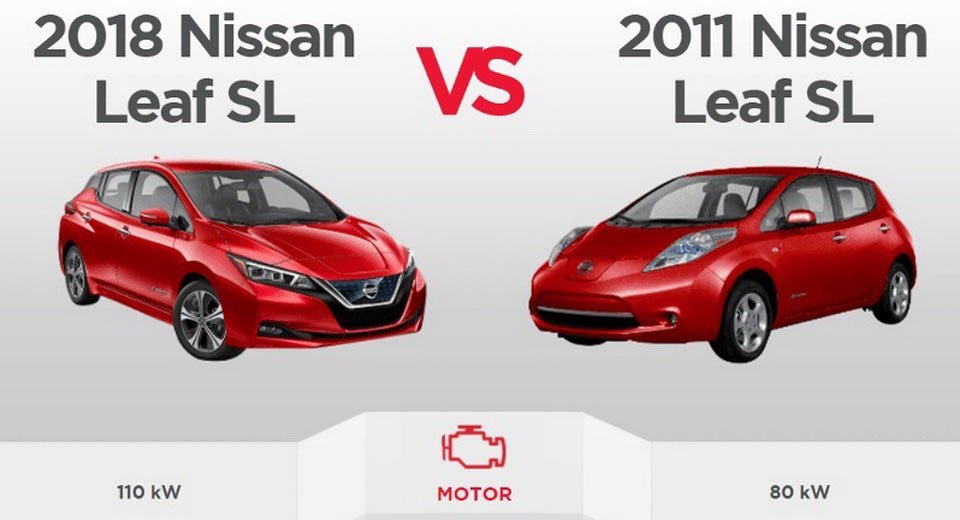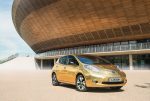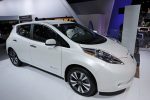
While the all-new 2018 Nissan Leaf hasn’t entered the U.S. market yet, future buyers can look forward to purchasing a car that’s significantly improved compared to its predecessor.
Even though it featured a familiar 5-door hatchback appearance, the design was of the fist-generation Leaf was quirky, to say the least – but that was probably intentional on Nissan’s part in order to emphasize that this wasn’t a conventional hatch but an all-electric model.
For the most part, the 2018 model managed to avoid looking “too different,” and is now scheduled to go on sale nationwide in January, priced from $29,990.
It also happens to be superior to the first-generation in multiple categories, as shown in this comparison chart put together by NissanPartsPlus.
“The Nissan Leaf is one of the most underrated and underappreciated cars on the road,” says Steve Ferreira, director of NissanPartsPlus.com. “Nissan has been building and selling reliable, affordable EVs with great range and performance for years. The 2018 Nissan Leaf is the next generation of a successful, practical vehicle. It should be getting a lot more attention than a car that still isn’t available from a company that’s hand-building EVs in a so-called ‘dreadnought’ factory.”
Since the 2018 Leaf is heavier, Nissan gave it a more powerful 110 kW (147 HP) engine, helping it get from 0 to 60 mph (96 km/h) in 8.8 seconds, compared to its predecessor’s 10 seconds. The newer model is also more aerodynamic, has a larger battery, twice the driving range, and more cargo room.
The icing on the cake is that, if you adjust for inflation, you’ll see that it’s also cheaper to purchase. Well done, Nissan.










